Summer 2009.
Inside this issue
- Welcome
- Grant received towards cataloguing the Mortimer Wheeler Archive
- Books and beyond: diversity in our collections
- UCL Libraries: Estate Developments in Summer 2009
- Profile: June Hedges, Co-ordinator, Teaching & Learning Support Section
- Farewell to Michael Jahn, History Subject Librarian
- Spotlight on... UCL Institute of Child Health Library
- Roving Librarians @ Engineering Café
Top tip!
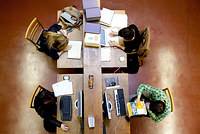
Spend the Summer getting WISE and learn about the best resources for your research and how to get the most out of all that UCL Library Services provides.
Debs Furness
Welcome

I wish all our students and users a very happy Summer and, for those leaving UCL, a very successful future career. It is possible for you to re-join the Library as a UCL graduate.
Paul Ayris
Grant received towards cataloguing the Mortimer Wheeler Archive
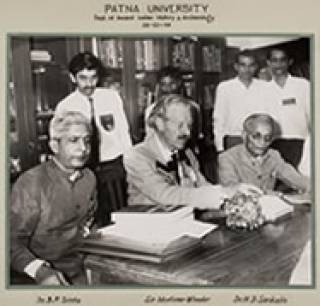
He was also a great populariser of his subject, helping to increase the public's awareness of archaeology through his spirited accounts on television and radio. He was honoured repeatedly for his achievements, culminating in his knighthood in 1952 for services to archaeology.
The archive consists of just over 100 boxes, 90% of which comprise correspondence and other subject-based files, dating from the 1940s to the 1970s. The remainder of the collection consists of maps and plans, notebooks, photographs and other personal material. The notebooks of Wheeler's first wife, Tessa, herself an eminent archaeologist, are also included in the collection. This project will make the archive accessible for the first time.
by Anne Chesher
Books and beyond: diversity in our collections
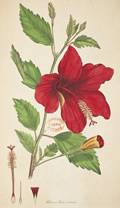
UCL Library Services' 2009 Summer exhibition for the Main Library staircase draws from nine unconnected subject areas, providing a flavour of the form and variety of the materials in our collections. It may be a surprise to find that the libraries hold more than just print, and some of our sites have extensive archives of interesting historical provenance.
Items in the exhibition provide a glimpse into pre-revolutionary Russia, and portray the artistry of the illustrator, engraver and book-binder through birthday tributes to the late Stewart Duke-Elder, and exquisite drawings of flora and fauna. A book, and excavation photographs from the Petrie Museum, combine to reveal a corner of ancient Egypt. Currently being celebrated as part of the International Year of Astronomy is Huygens' Systema Saturnium, announcing the discovery of a ring around Saturn 350 years ago. There's poetry too, not least the celebrated find of a lost Byron manuscript by our own Rare Books Librarian, Susan Stead. Toys may not be expected in a university library, but have a special role in the work of speech therapists and are featured here. Experimental music as an art form, and sustainable architecture, represent just some of the other areas we collect in today.
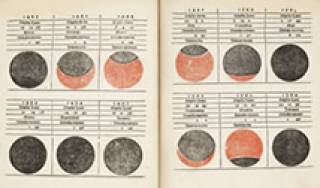
The exhibition will be on display from May 2009.
by Kate Cheney
UCL Libraries: Estate Developments in Summer 2009
2009 is proving to be another eventful year for UCL Library Services' buildings. New signage is being rolled out in the Main and Science Libraries, and a variety of projects are scheduled for the Summer in various UCL libraries.
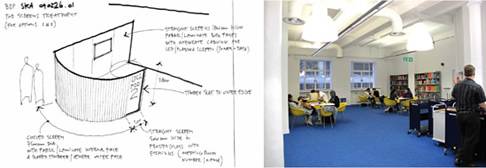
Science Library: Learning Laboratory Phase 2
The Learning Laboratory Phase II project completes the vision for the ground floor of the UCL Science Library. The focus is on the provision of improved services for readers including:
- Provision of 3 new turnstiles at the entrance. After the project is completed, there will be 4 entry gates and 2 exit gates.
- Provision of 4 new group study areas to the South of the ground floor area, by using 1900mm high fixed screens to identify the spaces and acoustically control the environment.
- Provision of seating and work tables to the group study areas with 32inch LCD screens to allow flexibility of use and presentations
- Removal of the existing IS Helpdesk and provision of a new IS Helpdesk and a new Library Enquiry Desk
- Reconfiguration of the photocopier area with the integration of 2 new seated E-Journals terminals and 5 new seated Library Catalogues adjacent to the Enquiry Desk
Main Library: First floor North Corridor
UCL Library Services are re-decorating the Main Library North Corridor from June 2009. The corridor houses the languages collections (French, Italian, Spanish), Literature, Classics & Ancient History. All the walls and ceilings in the reading rooms and corridor will be re-painted.
The original Richardson chairs have been refurbished (since March 2009), and chairs throughout the Library will be refurbished by July 2009. The desks in the reading rooms will be re-covered with new tops. Finally, new blinds will be fitted in all reading rooms.
UCL Institute of Child Health
The UCL Institute of Child Health Library will have a refurbished reading room, with 30 new reader desks equipped with power points for laptops.
UCL Institute of Ophthalmology
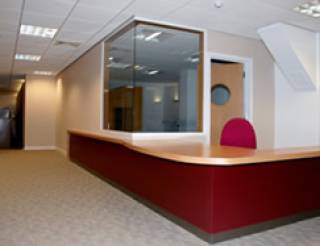
The Joint Moorfields Eye Hospital & the UCL Institute of Ophthalmology Library is being refurbished and reconfigured, due to space lost to make way for a new laboratory. Plans have yet to be finalized, but the Library will benefit from a new Issue/Enquiry Desk, new Staff Office and a Training Room.
Malet Place surfacing works
In June, UCL Estates will begin a 2-year programme to re-surface Malet Place. Access to the Science Library entrance will be improved with the removal of the existing steel barrier. A new barrier with granite finishes will be installed, with a wider ramp to cope with the Library's high usage.
See also
by Benjamin Meunier
Profile: June Hedges, Co-ordinator, Teaching & Learning Support Section
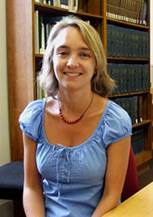
I joined UCL in 2003, having worked for 2 years as a Liaison Librarian looking after Modern Languages and Media Arts at Royal Holloway in Egham. UCL wasn't an entirely new environment to me as I had studied for a year at the Department for Information Studies (or SLAIS as it was then known) relatively recently. I was attracted to UCL by its reputation, the principles on which it was founded and also its size - the huge range of subjects that are taught, the masses of students, academics, and researchers, the number of buildings, libraries, etc. The notion of being able to support and be part of such a huge community was (and still is) exciting.
My post of Co-ordinator of the Teaching & Learning Support Section (I think I remain the only "Co-ordinator" in UCL Library Services) was a new one and came with a number of exciting goals and challenges. I am pleased that together with the TLSS team we have met and surpassed many of these goals, although some of the challenges remain. The TLSS exists to provide support to taught course students across UCL, by working with academic staff to provide access to core readings. Over the years we've been evolving our services so that this access is digital wherever possible. Central to this is the online reading list service, which has been slowly growing since it was set up early in 2004. Although creating the reading lists can be labour intensive, the benefits to the students - having a central access point to all of the course readings materials that the Library provides - make this worthwhile. Plus lecturers now have the option of maintaining their own lists once we have set them up.
The constantly growing e-library that UCL Library Services subscribes to and changes in national licensing schemes, in particular the Copyright Licensing Agency's HE Licence, have dramatically increased the amount of full-text that we are able to link into the reading lists. But keeping track of these changes and being able to communicate them to our service users can be a challenge. Copyright and licensing are pretty dry subjects and they never seem to be straightforward. Providing advice to lecturers on copyright issues related to using resources to support their teaching is another significant aspect of my role. It is certainly something that can be confusing and lead to frustration in the context of e-learning. The ease of access and wealth of resources afforded by the growth of the internet make it easy to assume that everything on "it" can simply be downloaded, copied and distributed, which is definitely not the case, even in an educational environment. I also liaise with colleagues in other support services to promote e-learning and help UCL academics take advantage of all of the services that we do offer to supplement and enhance their teaching.
I have been fortunate that my work at UCL has led to my being involved in several external committees that represent the Higher Education community, such as the JIBS User Group Committee and the HERON committee. This is a very rewarding aspect of my work as it puts me in contact with many practitioners from across the UK. It means that we can share our experiences and learn from what other institutions are doing. UCL is almost unique in having a dedicated Teaching & Learning Support Section so we do get many colleagues from elsewhere coming to us for advice and information about our services. So on that note, I'd encourage anyone that hasn't taken a look at how the TLSS can help to have a look at our web pages.
by June Hedges
Farewell to Michael Jahn, History Subject Librarian

Michael Jahn, the subject librarian for History in UCL Library Services, retires in July this year after a remarkable total of 40 years service.
Michael joined the Library in August 1969 as Assistant Librarian in charge of the Gordon Square Library, a separate site library based in the History department building in Gordon Square which at that time included the Economics as well as the History collection. Michael continued to manage that site for 18 years until 1987 when he oversaw its closure and the transfer of the collections to the Main Library where he has been based ever since. Michael's links to UCL go back even further than 1969, however, as prior to joining the Library staff he had been both an undergraduate and postgraduate student in the Geography department from 1962-67, followed by one year at the Library School at UCL in 1968-69 where he received the Sir John MacAlister Medal.
During his time here Michael has looked after a number of other subjects in addition to History, having at various times covered Economics, Geography, Medieval Archaeology and Spanish. However, it is for his contribution to the History collection that he will be best remembered, having built and maintained over the course of his career one of the best collections of its type in London. He has done so with the utmost dedication, professionalism and attention to detail, all of which has earned him the respect of all those who have worked with him over the years. His knowledge and experience will be greatly missed by colleagues within UCL Library Services and across UCL, all of whom will want to wish him a long and happy retirement.
by Martin Reid
Spotlight on... UCL Institute of Child Health Library
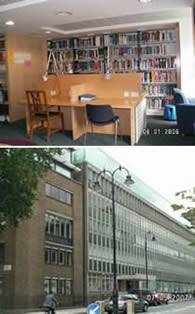
A wealth of information, some dating back to the 18th century, can be found at the joint UCL Institute of Child Health and Great Ormond Street Hospital Library which is otherwise known as The Friends of the Children of Great Ormond Street Library.
The Library has been part of the UCL Institute of Child Health (ICH) and Great Ormond Street Hospital (GOSH) for many years, and it's understood that it has existed in some form since ICH was established in 1945.
Great Ormond Street Hospital opened on Valentine's Day 1852 and was the first children's hospital in the world. Today it is still one of the world's foremost children's hospitals and the Institute, which is effectively its "Medical School", also undertakes research into diseases of childhood.
The Library was originally based at GOSH but it was relocated when a new ICH building was opened in the early 1960s. In 1996, funding was made available to refurbish and extend the Library, and a further extension to the reading room was provided in 2002.
In January 2009 the Library merged with UCL Library Services. One change planned for this year is to change the Catalogue from the existing Unicorn system to the eUCLid (now Explore) catalogue. This is scheduled to take place in July and August.
The Library is on the 2nd floor of the ICH building and is staffed between 9am and 6pm on weekdays. It has 1,900 members who can use the GOSH networked PCs, UCL networked PCs, printers and scanners and photocopying facilities.
In addition to its core book and journals collections, the Library has historical material and books written by GOSH and ICH staff, and an in-house database of their journal articles is also being developed. The Source collection supports the Centre for International Health and Development at ICH and has information on international health and development and disability. The collection also has unpublished material.
The team at the Library is made up of the Librarian John Clarke, the Deputy Librarian Grazia Manzotti, Assistant Librarian Heather Chesters and Library Assistants Teresa Wood and Sui Jing Ly. Combined, they have a very extensive knowledge of the Library and what resources are available. Training is available for databases such as Medline and the Web of Science, as well as other databases to support clinical decision making and evidence-based practice and Reference Manager software.
The Library is also supported by a very comprehensive website, which includes a virtual tour and floor-plan, lists of resources and staff and a library blog with up-to-date library news. It's well worth a look.
by Grazia Manzotti
Roving Librarians @ Engineering Café
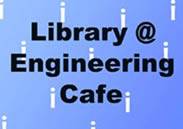
In a bid to make the Library more visible and accessible to our users, the Science Subject Team have been piloting a pop-up enquiry service once a fortnight in the Engineering Café. This has given the team the chance to meet students and hear their feedback as well as offer help on searching the Library Catalogue, accessing exam papers, using e-resources etc. in an informal relaxed environment. We are hoping to continue this service next term, so look out for us and do come and say hello!
by Ruth Russell
 Close
Close

